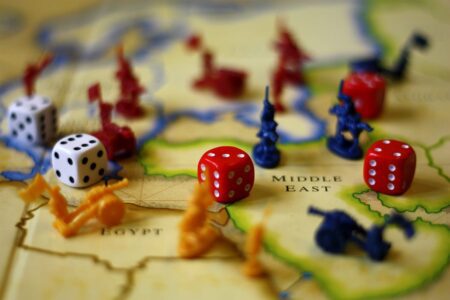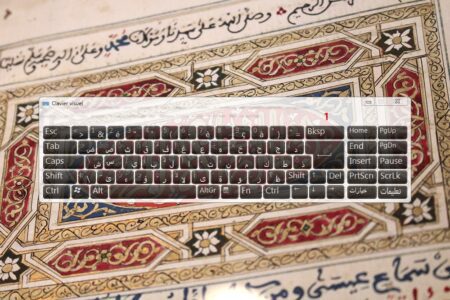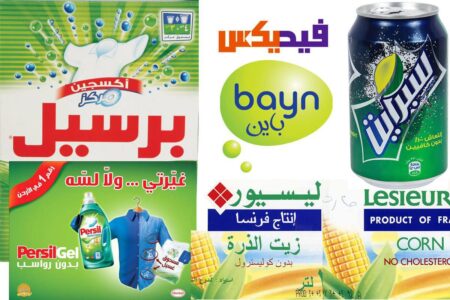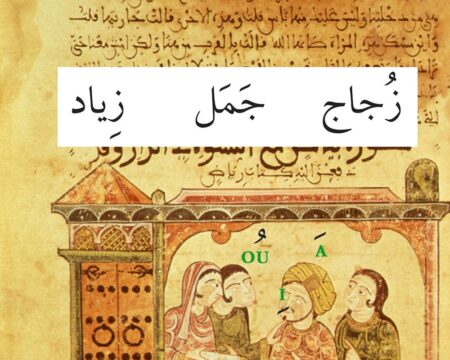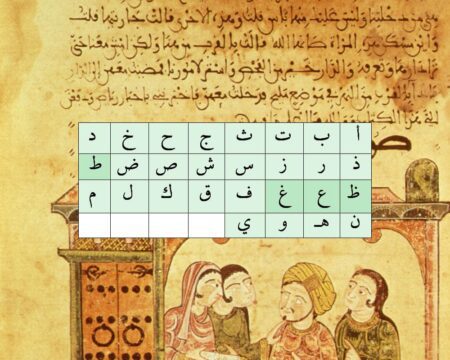The Berber word for winter is Tagrest. It is a harsh season in the mountains, which begins with the period of the forty lyali, the coldest nights of the year.
What languages are spoken in Morocco?
From a linguistic point of view, Morocco is anything but simple. As an African and Muslim country belonging to the Arab League, it would make sense for Arabic to be spoken there.
Arabics in Morocco
In reality, they speak a dialect called darija, or derja, which means “the language of everyday life”, and which is very different from “standard” (fusha) or “literary” Arabic (which is the one used in the Coran).
And this darija itself is divided into different groups, whether you are from Casablanca, the Doukkalas, Oujda or Agadir. Further south, towards the deserts, other versions of Arabic are also spoken, such as Hassania, towards M’hamid.
And on television, Egyptian Arabic is often heard…
Berbers in Morocco
This country, which is 75% Berber, still speaks Berber, or rather, depending on the region, one of the three Berber dialects, that of the Rif, that of the Sous or that of the mountains and deserts. In recent years, Amazigh has become an official language, alongside Arabic, and is taught in schools and used on road and administrative signs.
Other languages spoken in Morocco
Some Moroccan Jews still speak Ladino, a Judeo-Arabic dialect.
They also speak, well or badly, the language of the colonisers who have become tourists or business partners. Some Moroccans who have passed through the “Mission” education system speak it even better than Arabic…
Finally, a significant number of Moroccans educated in foreign universities speak German (which the French once called “schleuh”, after the Berber tribes of the Sous) or Russian.
The special place of French in Morocco
Whether a legacy of colonisation or, as Mohammed V put it at independence, a “prize of war”, French has a very special place in Morocco, as a language with no official status but used on a daily basis in government departments and businesses.
Many Moroccans have a difficult relationship with French, and some are campaigning for it to be replaced by English, but this is more difficult to do than to say.
If you can live in Morocco speaking only French, it’s much better to also speak Arabic, and that’s what we suggest here.
How can foreign words or letters that do not exist in classical Arabic be transcribed into Arabic? By taking existing letters and adding dots to them.
Which languages are actually spoken and written by Moroccans? In what contexts? Understanding Moroccan multilingualism through a study by Sunergia and the results of the 2024 census.
How do you choose the right word to describe your home in Arabic? This post gives you all the information you need
Standard Arabic, Darija and French are the three most common languages in Morocco. Even if English becomes more common, living in Morocco without a local language is difficult.
An educational magazine is publishing a special issue on Morocco, but its article on Moroccan languages is full of inaccuracies and fails to reflect the country's complex reality.
Autumn is called ⴰⵎⵡⴰⵏ (Amwan) in Berber. It's too short a season, but I think it's my favourite, as it gives us a break from the summer heat and allows us to see migratory birds!
Summer is called Anbdu in Berber, and it is not the most beautiful of the four seasons in this country, where heat is more of an enemy.
The goat that flies with its tuft of grass between its teeth, an Amazigh proverb known to all, the local substitute for the Milka marmot.
It's a simple question with no answers, and it raises a whole host of other questions. What if sardine was a Berber word?
"Tafaska" is the Berber name for Eid el Kebir, meaning " festival of sacrifice " (like Eid Al Adha).
Risk and hazard are two Arabic words that came into French through the back channels of Arabo-Andalusian, changing their meaning to a greater or lesser extent.
Writing in Arabic with an English PC? It's easy! There are several solutions for writing in Arabic with a QWERTY keyboard without breaking the bank. This article explores the possibilities: visual keyboard or real keyboard.
Coca-Cola and its rival Pepsi, Cadbury, Fanta... how major brands ‘translate’ their logos into Arabic while maintaining their visual identity. A good reading lesson.
Lesson seven, a very important one: the signs that enable us to vocalise all those words written only with consonants. They are used for learning purposes and in specific contexts
And now we've come to the end of our writing lessons, with four letters that are easier to write than to pronounce... Zâ, Ayn... the ones that a foreigner will never be able to pronounce perfectly..












